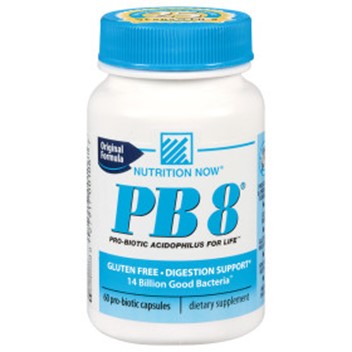In the modern world, we know more about health than we ever knew. One of the things we know more about is probiotics the role of probiotics has gained immense attention for its potential positive impact on our digestive system, immune system, and even on mental health.
Probiotics – the complex ecosystem that delves and thrives with us. As we uncover the latest research and insights on probiotics, Cura360 will also explore the benefits of probiotics, and how these tiny microorganisms can play an important role in promoting a healthier, and happier you. Learning about probiotics and their importance can help you unlock a better quality of life.
What are Probiotics?
Probiotics are live microorganisms that are beneficial for our health, particularly for our digestive and immune systems. These microorganisms, often referred to as “good” or “friendly” bacteria, reside in our gastrointestinal tract and play a crucial role in maintaining a balanced and healthy gut environment.
The most common types of probiotics belong to the Lactobacillus and Bifidobacterium genera, but there are many different strains within these groups, each with unique benefits. Probiotics work by maintaining a harmonious balance between beneficial and harmful bacteria in the gut. Now with the definition it is also important to understand the benefits of taking probiotic supplements since our hectic life and busy schedule doesn’t allow us to take care of ourselves through a proper diet.
Benefits of Probiotics
- Improved Digestive Health: Probiotics play a crucial role in maintaining a balanced gut microbiome, which in turn supports healthy digestion. They can help alleviate digestive issues such as bloating, gas, constipation, and diarrhea by promoting the growth of beneficial bacteria and inhibiting the overgrowth of harmful microorganisms.
- Enhanced Immune Function: If your digestive system is strong your immune is strong and a significant portion of your immune system resides in the gut. Probiotics can strengthen the gut barrier, which serves as the first line of defense against pathogens. By promoting a healthy gut environment, probiotics can contribute to a robust immune response and better protection against infections.
- Regulation of Bowel Movements: Probiotics may help regulate bowel movements by promoting regularity and preventing constipation or diarrhea. Certain strains of probiotics, such as Bifidobacterium lactis, have been linked to improvements in stool consistency and frequency.
- Support for Gut-Brain Connection: Emerging research suggests a strong link between the gut and the brain. Probiotics may positively influence mental health by potentially reducing symptoms of anxiety, depression, and stress. This connection underscores the role of probiotics in promoting overall well being.
- Management of Irritable Bowel Syndrome (IBS): Probiotics, particularly strains like Lactobacillus and Bifidobacterium, have shown promise in alleviating symptoms of IBS, a common gastrointestinal disorder characterized by abdominal pain, bloating, and altered bowel habits. So if you suffer from any of these problems probiotics can help you.
- Reduced Inflammation: Probiotics can help modulate inflammation in the gut by promoting a balanced microbial environment. This is significant, as chronic inflammation is linked to various health issues, including inflammatory bowel diseases (IBD) and autoimmune conditions.
- Support During Antibiotic Use: Antibiotics, while effective in treating infections, can also disrupt the balance of gut bacteria. Taking probiotics alongside antibiotics may help mitigate some of the negative effects on gut health.
- Potential Cardiovascular Benefits: Some studies suggest that certain strains of probiotics can contribute to heart health by helping to manage cholesterol levels and blood pressure.
- Overall Well Being: The health of your gut microbiome can influence various aspects of your health, from nutrient absorption to immune function. By promoting a balanced gut environment, probiotics can contribute to your overall sense of vitality and well being.
Food that you can eat to increase good probiotics
If you can eat any of these following food you can expect the number of good probiotics in your body to go up and help you improve your health.
- Yogurt: Yogurt is one of the most well known sources of probiotics. Look for yogurt labeled with “live and active cultures.”
- Kombucha: Kombucha is a fermented tea beverage that contains a variety of probiotic strains. It’s known for its tangy flavor and potential digestive benefits.
- Sauerkraut: Fermented cabbage, or sauerkraut, is rich in probiotics and also provides vitamins C and K. Choose unpasteurized sauerkraut to ensure it contains live cultures.
- Kimchi: A traditional Korean dish made from fermented vegetables (usually Napa cabbage and radishes), kimchi is spicy and flavorful, offering a range of probiotic strains.
- Miso: Miso is a Japanese seasoning made from fermented soybeans. It’s commonly used in soups and dressings and provides probiotics along with essential nutrients.
- Pickles: Fermented pickles, made without vinegar, can provide probiotics. Opt for pickles that are naturally fermented in brine.
- Traditional Buttermilk: True buttermilk is the liquid left over after churning butter. It’s different from the cultured buttermilk commonly found in stores. Traditional buttermilk is a good source of probiotics.
- Traditional Cheeses: Certain types of cheeses, such as gouda, cheddar, and Swiss, contain live cultures due to their fermentation process. Always check the label for “live and active cultures.”
- Fermented Soy Products: Besides tempeh and natto, other fermented soy products like miso and soy sauce can contribute to your probiotic intake.

Is it safe to consume probiotics?
Given the above benefits and the usual study conducted having a good number of probiotics in your body is a good thing but there are still some health complications or conditions that you should know of and during these complications/conditions consumption of probiotics is not considered safe.
- Underlying Health Conditions: If you have a compromised immune system or an underlying health condition, it’s advisable to consult a healthcare professional before incorporating probiotics, especially in supplement form.
- Specific Strains: Different probiotic strains can have different effects, so what works for one person might not be suitable for another. Consulting a healthcare professional can help you choose the right strains based on your individual health needs.
- Rare Risk in Certain Populations: There have been rare cases of serious infections related to probiotics, particularly in people with weakened immune systems or underlying health issues. While these cases are extremely rare, those with compromised health need to consult their healthcare provider before taking probiotics.
- Pregnancy and Infants: Pregnant or breastfeeding women and infants should consult a healthcare provider before using probiotics, as the effects on these populations are still being studied.
- Gut Sensitivity: Some individuals may experience mild digestive discomfort when introducing probiotics, especially if they are new to these foods. This can include symptoms like gas, bloating, or changes in bowel habits. Such reactions are usually temporary as your gut adjusts to the changes in its microbial balance.
Can children take probiotics?
The easy answer is yes, Probiotics can be safe for children, but it’s advisable to first consult a pediatrician before giving them probiotic supplements. Some strains may be suitable for addressing specific childhood conditions like diarrhea. It is better to give children probiotic supplements that are recommended by the doctor.
Can I take probiotics with antibiotics?
Taking probiotics alongside antibiotics is a common practice to help maintain a balanced gut microbiome. Because intake of antibiotics kills probiotics in the process and taking probiotics is to maintain the balance However, it’s recommended to stagger the timing between the two and consult a healthcare professional for guidance.
Conclusion:
Probiotics are one of the many essential microorganisms that you need to care about and increase your intake of good probiotics. Above mentioned benefits should make it clear to you the importance of probiotics and Cura360 does know having a probiotic-rich diet in a busy schedule is close to impossible. Luckily, Cura360 has a range of products that specializes in fulfilling your probiotic needs.
If you’re still confused about choosing probiotic products you can call Cura360 at 1-8332073433 and ask for one of Cura360’s specialists to help and guide you in the selection of the probiotic supplements for your needs. You can also visit Cura360 for useful product information, photos, and videos of the product. At Cura360, we are waiting to help you make the perfect decision.
If you’re looking for something more than just supplements Cura360 can help you. It’s the one-stop destination for all your health and wellness needs.
Send Cura360 message in our chat box, and wellness specialist from Cura360 will get back to you ASAP. You can also request a call back by clicking on the “call back” button or calling Cura360 at 1-833-207-3433.

 1-833-207-3433
1-833-207-3433
